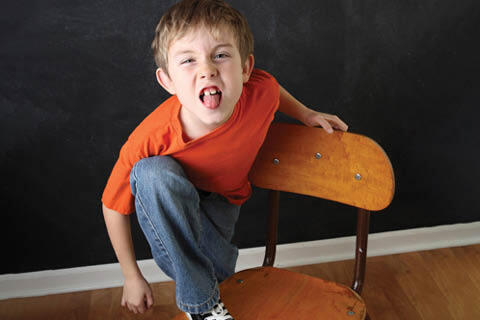Self-regulation is the ability to manage your thoughts, emotions and behaviors in order to achieve long-term goals. By regulating your physical, emotional and cognitive processes in healthy, pro-active ways you are more inclined to be successful in school, at work and in your personal life. Challenge in life is inevitable, and to effectively respond to challenge it’s critical to develop skills in these three separate areas.
If you had searched for a definition of self-regulation 10 or 15 years ago, you would have found no shortage of information on impulse control – which is a piece of managing ourselves. However, we need to manage more than just our impulses. We’ve learned when we study how human beings respond to challenge that we have three systems responding that are integrated and connected, while also having their own unique qualities.
Developing Self-Efficacy
A key to the concept of self-regulation is self-efficacy, which I learned early on when working with patients one-on-one. Self-efficacy means having a basic belief in yourself that you can set a goal and achieve it. Psychologist Albert Bandura, who was the originator of social cognitive theory, introduced the theory of self-efficacy. Self-efficacy influences what a person chooses to do, how much effort he or she puts forth and how he or she feels while doing it. Individuals with a greater sense of self-efficacy typically succeed more frequently than those with low self-efficacy. Bandura believed that mastery experiences are the most effective way to build self-efficacy.
When I started working with individuals I quickly discovered if we didn’t have some of that self-efficacy, we weren’t able to move forward. It didn’t matter how compassionate I was as a clinician, how much I wanted them to change, how awesome my lessons were or how many times I reached out to them. If they didn’t believe that they could do anything about their situation, we were wasting time. They weren’t going to move forward. And if people aren’t making progress or doing better, that can have a negative impact.
Behavior as a Skill Set
When you redefine behavior as a skill set and as something that people can practice and improve, it has a huge impact on their self-efficacy. It helps move them forward out of a learned helplessness position – a position which I equate to poor self-regulation or dysregulation. One of the things we know is that individuals who don’t regulate well in the face of challenge tend to fail, whether it’s an academic challenge, a social challenge, a job challenge or an internal challenge.
Conversely, if you’re able to increase self-regulation skills, you will have more positive peer interactions. Your chances for success and performing tasks improve. Self-regulation is highly correlated with academic success, and we’ve also seen that it has a direct correlation with mental health issues.
Creating Balance in the Face of Challenge
If you break down self-regulation and look at disorders like anxiety and depression, sadness is a normal human emotion. It’s only when it becomes extreme that it becomes diagnostic as major depression. If we didn’t have any anxiety at all, we wouldn’t make it out of bed and make it to work on time and do the some of the things that we need to do. We’re not going to do away with anxiety. We need a moderate level of anxiety. This illustrates the importance of being able to create balance in the face of challenge.
We’re creating balance in three separate areas, physical regulation, emotional and cognitive regulation. The term self-regulation is important. That first word in self-regulation is self. This is clearly a model of how we’re teaching people to manage themselves better, which is much different than a system that is heavily weighted on how we are going to manage you better externally. The goal of self-regulation is building the skills of internal control to increase success in school, at work and in life.





